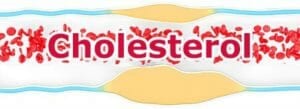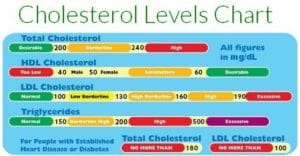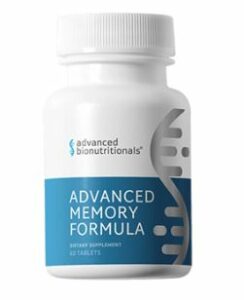 Why does cholesterol matter? it matters because too much LDL cholesterol is dangerous meaning you may be at risk of a heart attack or stroke. If I were to give you the perfect cholesterol formula. So what should my total cholesterol be?
Why does cholesterol matter? it matters because too much LDL cholesterol is dangerous meaning you may be at risk of a heart attack or stroke. If I were to give you the perfect cholesterol formula. So what should my total cholesterol be?
It would look something like this, total cholesterol and LDL cholesterol ( bad cholesterol) should be kept as low as possible and HDL (Good cholesterol) should be kept higher because it offers a safeguard against cardiovascular disease.
So, what should total cholesterol be?
Levels of cholesterol will vary depending on sex, age and weight, unfortunately as we age our bodies are prone to making more cholesterol, so we need to have our cholesterol levels checked regularly, a guideline would be up to age 40, every 4-6 years, up to age 50 and beyond every year is advisable.
How is cholesterol measured?

Cholesterol test
Photo by Hush Naidoo on Unsplash
Cholesterol is divided into three types:
HDL is known as “good cholesterol” high-density lipoproteins
LDL is known as “bad cholesterol” low-density lipoproteins
VLDL or very low-density lipoproteins
 What is total cholesterol?
What is total cholesterol?
Total cholesterol is the total amount of HDL and LDL cholesterol in your blood test combined, HDL or high-density lipoprotein and LDL and low-density lipoprotein are added together to give your total cholesterol reading.
Most people find it difficult to keep a balance of cholesterol early in life, not managing your cholesterol levels as you go through life may cause problems later and be difficult to treat. Your doctor should be making you aware of the steps to take to prevent your cholesterol from getting too high and putting you in danger.
It doesn’t mean that you must take statin drugs there are other ways to reduce cholesterol for example by watching what foods are in your diet.
High cholesterol in men
Men find it harder to control their cholesterol levels because men are more prone to higher cholesterol during their lives compared to women, but that doesn’t mean that women can’t have high cholesterol, especially during menopause.
According to one study women’s cholesterol during menopause can vary by as much as 19%, previous studies have shown that by taking estrogen cholesterol levels are affected.
So, what are the recommended cholesterol levels?
When we talk about a healthy cholesterol level in a typical adult it won’t fluctuate much, however, it will change where there are medical and/or health conditions.
An appropriate cholesterol level for an adult would be 200 milligrams per decilitre or mg/dl, let’s say your reading is somewhere in between 200-239 mg/dl which is interpreted as borderline high, if your reading is 240 mg/dl or above it is determined to be high.
What should your HDL be?
As we stated a higher HDL is desirable, nowadays a reading of 41- 59 mg/DL is classified as borderline low, and a reading of 40 mg/DL or less is determined to be a significant risk element for heart disease. The ideal HDL reading is in the range of 60 mg/DL or above.
What should your LDL be?
LDL or bad cholesterol levels should be under the 100 mg/DL range, between 100 & 129 is satisfactory for those with good health but will be a concern for people with heart disease or those who have risk factors for heart disease. Readings of 130-159 mg/DL are arguably high whereas readings of 160-189 mg/DL are high. A very high reading of 190 mg/DL is in urgent need of treatment. So, the readings in adults should be:
Normal: below 100 mg/dl
Borderline high: 130-159 mg/dl
High: 160-189 mg/dl
Very high: 190 or above mg/dl
Is cholesterol in children dangerous?
Cholesterol levels in children will be different to adults, a safe acceptable level for children is determined at less than 170 mg/DL, borderline will range at between 170-199 mg/dl, and any reading over 200 mg/DL is considered too high. So, the readings for children should be:
Normal: Below 110 mg/DL
Borderline high: 110-129 mg/DL
High: over 130 mg/dl
Tips to lower cholesterol
I know it’s a cliché, but what you eat, how you exercise, and control stress are so important to keep your cholesterol under control, young children should be taught the benefits of a healthy diet and regular exercise, in today’s world it seems that exercising their fingers on phones and iPads have taken precedence.

Cholesterol tips children
Photo by Robert Collins on Unsplash
High cholesterol risks for children
Children who are overweight because of a bad diet of processed foods and a lack of exercise are at the highest risk of developing high cholesterol as well as children who there is a family history of high cholesterol.
The sooner in life that children and adults start to live a healthier life combined with regular exercise the better their cholesterol levels will be.
If the healthy food and exercise cholesterol program is followed earlier in life it will be less difficult to deal with high cholesterol as we age.
Adults and women during menopause with high cholesterol have the option to take cholesterol medication rather than depend on diet and exercise to reduce their cholesterol.
Heart disease risk
It has been well documented that high cholesterol increases the risk of a heart attack, heart disease, or stroke, this risk can only increase with age particularly if no action is taken to reduce the build-up of cholesterol.

Doctors visit
Photo by Online Marketing on Unsplash
When to see a doctor
The recommendation for children is a cholesterol test should be done one or two times before the age of eighteen, if there is a family history of heart disease, a health condition, or weight issues it may be necessary to go more often.
The recommendation for adults is after the age of twenty see a doctor every 4-6 years, the same applies to healthy adults, however people with these health issues need to see a doctor for treatment and lifestyle changes to bring levels of high cholesterol down.
- High or borderline levels of LDL and Total Cholesterol
- Family history of heart disease
- Weight issues

Cholesterol supplements
Photo by Daily Nouri on Unsplash
What are high cholesterol treatments?
As mentioned earlier the first treatment should include lifestyle changes such as a change of diet, weight management, and exercise, the second option is cholesterol medication, or the third option is a mixture of diet, weight management, exercise, and cholesterol-lowering supplement.
A diet that is low in saturated fat & trans-fat but also high in soluble fibre & protein is usually good for lowering cholesterol.

Healthy cholesterol diet
Photo by Brooke Lark on Unsplash
Which diets are good for lowering cholesterol?
There are so many diets out there that will help you to lower cholesterol, I like the advice from the people at the Mayo Clinic, they suggest that you include the following in your cholesterol-lowering diet:
- Oatmeal, oat bran, and high-fiber foods
- Fish and omega-3 fatty acids
- Almonds and other nuts
- Avocados
- Olive oil
- Foods with added plant sterols or stanols
- Whey protein
They also advise that you limit the amount of saturated and trans fats in your diet, saturated fats are found in full-fat dairy products, milk, cheese, and butter, and trans fats are found in cookies, biscuits, and cakes.

Salmon
Photo by Usual Click on Unsplash
Foods you should eat to lower cholesterol
Knowing what the best foods are to eat to lower cholesterol is half the battle, here is a list for you:
- Fruit & Vegetables
- Whole grains
- Fish
- Low or non-fat dairy products
- Fish (Salmon or mackerel)
- Lean meat
- Skinless chicken, turkey
Get enough fiber
To avoid putting on weight it is advisable to include or increase your fiber intake from your foods like:
- Nuts & seeds
- Peas, pulses & beans
- Broccoli, sweetcorn, and carrots
- Fruits such as berries, melon oranges, and pears
- Potatoes in their skins
- Wholegrain cereals, pasta, bread & oats.
Weight management
One of the key components to lower your cholesterol is weight management, by lowering your weight you help to reduce the LDL or “bad cholesterol” losing weight is extremely important for people in the high-risk category, people with:
- High triglycerides
- High LDL levels
- Low HDL levels
- Weight issues

People exercising
Photo by Jos Zwaan on Unsplash
Regular exercise
The recommended daily physical activity for everyone is a minimum of 30 minutes of physical activity, this will help with weight loss and lowering bad cholesterol (LDL). Should this activity not work it may be necessary to incorporate statin drug treatment into your lifestyle, there are many choices of cholesterol-lowering drugs on the market and they include:
Statin drugs: These are designed to stop your liver from making cholesterol
Cholesterol absorption inhibitors: This type of drug lower triglycerides and reduces the amount of cholesterol assimilated from your food
Bile acid sequestrants: Designed to reduce the quantity of fat absorbed from your food.
The best treatment for lowering cholesterol
The best cholesterol-lowering treatment will initially involve speaking to your doctor to discuss the best options for you, they will include lifestyle changes, dietary changes, and in some high-cholesterol cases the use of cholesterol-lowering drugsreading symptoms.
References:
https://www.nih.gov/news-events/news-releases/womens-cholesterol-levels-vary-phase-menstrual-cycle



4 Comments
Leave your reply.